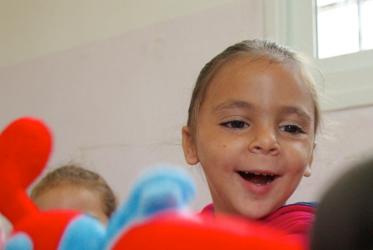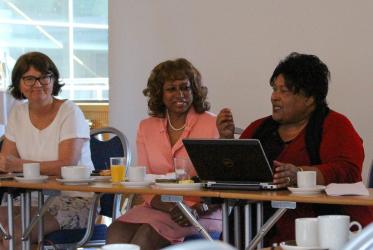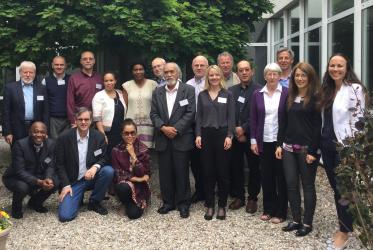Displaying 281 - 300 of 368
20 August 2016
Pan-African Christian organization dedicates new office
04 August 2016
In Ghana, women bring open minds, honest words
05 July 2016
Religion: Way of war or path to peace?
30 June 2016
Tveit in South Africa: “ We know. We dare. We can.”
12 June 2016
Ecumenical educators plan global institute
25 May 2016
Winners of WCC photo contest announced
09 May 2016
WCC conference explores ecological injustice in Uganda
21 April 2016











